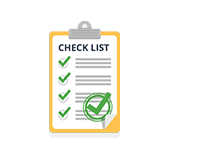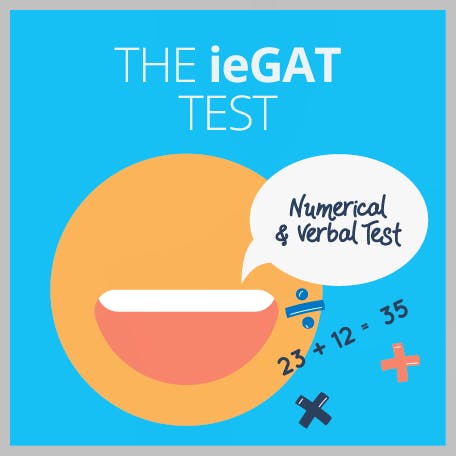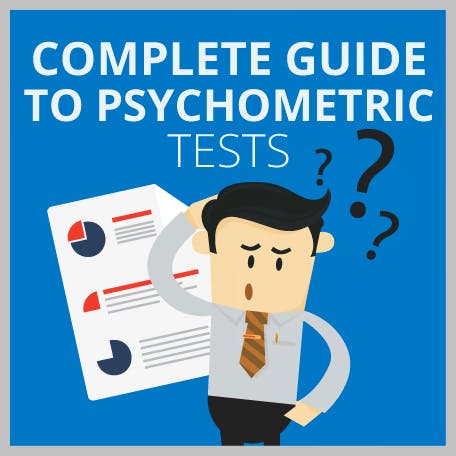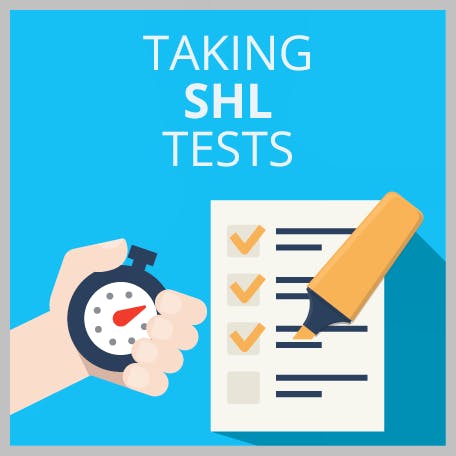How to Cheat on the GMAT and Why You Shouldn’t: GMAT Prep Guide
Updated November 18, 2023
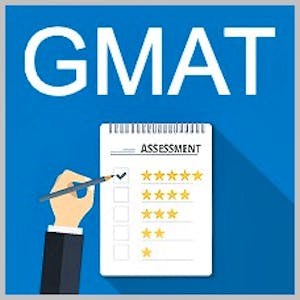
- How to Cheat on the GMAT
- Is Cheating on the GMAT Worth it?
- How to Pass GMAT without Cheating?
- How to Prepare for GMAT?
empty
empty
empty
empty
- GMAT PREP: Additional Advice
empty
empty
empty
empty
- Frequently Asked Questions

Considering cheating on your GMAT (Graduate Management Admission Test) Exam?
Want to know how to do it, if you should do it and what the consequences will be?
Well you came to the right place!
Read on to find out more about cheating on the GMAT exam, but be warned...
... it's certainly not something I advise!
How to Cheat on the GMAT
I don’t need to tell you that the GMAT exam is extremely difficult, and the rewards from getting a high score (650+) are invaluable. In fact, it could be life-changing.
But do you really want to cheat your way into Business School? And even if you want to.
Let’s be frank, cheating on the GMAT is not easy.
It is also illegal, and if you get caught the punishment could be severe.
My view? If you’re someone who’s considering cheating on your GMAT exam, you probably shouldn’t be going to Business School, and you certainly shouldn’t be employed at an executive level by a global company.
Not only is cheating deceitful, it’s also so likely that you’ll get caught that the decision to cheat shows some extremely poor judgment.
Let’s explain why, by explaining exactly how you can cheat while pass the GMAT in the methods outlined below.
Step 1. Get Someone Else to Take the GMAT Test for You
In order to cheat, some GMAT candidates have paid other people to take the GMAT for them.
Most of the time this takes the form of GMAT prep coaches getting paid fairly large sums of money to take the test, guaranteeing a very high grade (700+) in return.
Sometimes people have got away with this.
Most of the time though, they do not.
In 2012 this guy was caught by the FBI for taking money from candidates to sit over 212 GMAT tests.
His website still exists (here) although it seems to be defunct.
He went to prison.
So the consequences for paying someone else to take a GMAT test for you can be extremely serious, and not just for the person you’re paying to take the test for you.
When Business Schools found out about this scam, they traced all the students who had used the service and disqualified them from their courses.
In the USA, current rules for taking the GMAT are very strict, and require fingerprint and photo identification, so it is very difficult for someone else to take a test for you there.
But this isn’t true in all countries.
So it is possible that you might still be able to find someone to take a test for you somewhere in the world where rules for taking the GMAT are less stringent.
Step 2. Get Access to Real GMAT Questions
In recent years, some companies have managed to gain access to ‘live’ questions that candidates will be asked in the real GMAT tests.
In 2008 a company called ScoreTop was discovered to be publishing and distributing live questions to candidates.
The company was shut down and forced to pay millions of dollars due to copyright infringement.
Over 6,000 candidates had used the ScoreTop website to prepare for their tests and many of these had their exam results withdrawn, or were removed from the Business Schools where they were studying.
Getting hold of GMAT questions and distributing them to candidates is illegal, and the GMAC (Graduate Management Admission Council) who own the GMAT exam have stated the following for anyone caught disclosing, accessing, or using "real" GMAT questions:
- Your GMAT scores will be cancelled.
- You will not be allowed to take the GMAT exam again.
- Business schools will be notified.
- You may be subject to a civil lawsuit or criminal prosecution.
So the consequences of cheating GMAT in this way are very serious.
There may still be companies, or individuals, offering access to live GMAT questions online.
The question is, do you really want to run the risk of getting in so much trouble, for the chance of getting a slightly higher mark on your GMAT exam?
Is Cheating on the GMAT Worth it?
Let’s ignore the fact that cheating is a completely dishonest thing to do.
Why else shouldn’t you cheat on the GMAT?
Well for one thing, cheating would expose you to civil liability, because when you sit down to take the real test you sign a legal agreement with GMAC.
And don’t think for a second that GMAC would let you off for cheating with a warning.
GMAC has a long history of pursuing strict legal action against anyone whose actions damage the integrity of the test.
And anyone caught cheating will additionally almost certainly be stopped from studying an MBA at any Business School in the world.
Perhaps even worse than that, cheating may expose you to criminal liability, because paying someone to someone to pose as you is fraud.
But perhaps most importantly of all, anyone who is not capable of getting a Business School program’s required score by themselves will seriously struggle to successfully complete the program.
Students leave Business School all the time for not being able to cope with the classes.
Do you really want to be the worst candidate in class, and struggle with your studies for the length of your course?
Ultimately, scoring highly in the test might seem like a trophy, but the GMAT score is designed to represent reality.
Your reality may not be getting into the very best school in the world.
And you have to remind yourself that this is OK.
How to Pass GMAT without Cheating?
So what if you want to guarantee to get a top score on the GMAT but you don’t want to cheat? Then you need to practice.
Chinese students generally do disproportionately well on the GMAT.
What’s their secret?
They simply prepare harder.
How to Prepare for GMAT?
There are several methods to get ready for the GMAT, including online GMAT test preparation from home.
All of them will cost money, but considering the price of an MBA, making the additional investment in yourself is almost certainly worth it.
To create the prep study plan we need to understand the context of the GMAT exam.
The GMAT exam is a computer-adaptive exam designed to test analytical, writing, quantitative, verbal, and reading skills. To test those skills GMAT has 4 main sections:
- Quantitative Reasoning
- Verbal Reasoning
- Integrated Reasoning
- Analytical Writing Assessment (AWA)
The GMAT exam time is 3 hours and 7 minutes total, time excludes two optional 8-minute breaks.
Explore each section and GMAT prep guides for them.
GMAT: Quantitative Reasoning Section
- 31 multiple-choice questions;
- 62 minutes to complete
The Quantitative section measures your ability to analyze data and draw conclusions using reasoning skills.
The math skills needed to understand and solve the questions are no greater than secondary school classes level.
The GMAT Quantitative Section includes 2 sub-sections:
-
Problem Solving: Test the ability to reason quantitatively and to solve quantitative problems.
-
Data Sufficiency: This is a unique question type to the GMAT you will recognize what information is relevant or irrelevant, and determine at what point there is enough information to solve a problem or recognize the fact that there is insufficient information given to solve a particular problem.
Math Skills You Need for GMAT Quant Section
- Algebra, Equalities and Inequalities
- Geometry
- Value Order and Factors
- Rates, Ratios, and Percentages
- Statistics, Sets, Counting, Probability, Estimation, and Series
Calculators are not allowed in the Quantitative Reasoning Section.
Test takers must do their math work out by hand using a wet-erase pen and laminated graph paper provided at the testing center.
GMAT Quantitative Sample Questions
City B is 4 miles due east of city A. City C is 3 miles due south of city B. City D is 4 miles due east of city C, and city E is 9 miles due north of city D. What is the distance between city A and city E?
A. 10 miles
B. 20 miles
C. 24 miles
D. 30 miles
E. 42 miles
If eight pounds of macadamia nuts, priced at 5.00 per pound, what is the per-pound price of the resulting mixture?
A. $5.25
B. $5.40
C. $5.50
D. $5.75
E. $5.80
GMAT: Verbal Reasoning Section
- 36 multiple-choice questions;
- 65 minutes to complete.
The Verbal Reasoning section of the GMAT exam measures your ability to read and comprehend written material, reason and evaluate arguments, and correct written material to express ideas effectively in English.
The GMAT Quantitative Section includes 3 sub-sections:
-
Reading Comprehension: Test takers read passages of varying lengths and answer questions on content, main idea, inferences, and other passage-related aspects.
-
Critical Reasoning: Test takers analyze a brief argument or statements and must assess its assumptions, strengths, and weaknesses, or select statements that amplify or undermine it; Test takers read passages of varying lengths and answer questions on content, main idea, inferences and other passage-related aspects.
-
Sentence Correction: Test takers receive a sentence with an underlined section and must select the best version from the provided options, aiming for grammatical accuracy, clarity or conciseness.
Useful Tips for Verbal Section of GMAT
Familiarity with Material: Don't expect to know every passage.
Answer questions based on the passage's content, not your prior knowledge.
-
Analyze the Passage: Understand the passage thoroughly before diving into the questions. Whether you skim first or read the questions before the passage, choose a method that works best for you.
-
Key Words and Phrases: Focus on essential terms and maintain a holistic understanding of the passage. Recognize the main idea, supporting ideas, and the conclusions drawn.
-
Question Comprehension: Ensure you grasp what's being asked. An answer that restates the passage might still be wrong if it doesn't address the question.
-
Evaluate All Answer Choices: Always read every option. Don't hastily pick an answer without considering all choices.
-
Base Answers on Passage: Your answers should be rooted in the passage's information. Avoid relying on external knowledge.
-
Comprehension Over Speed: Prioritize understanding the content over reading quickly. If you're lost, revisit the passage, but remember time is limited.
-
Understand Statements and Arguments: For critical reasoning, grasp the basis of statements or arguments. Identify factual information, conclusions, and the soundness of reasoning.
-
Sentence Correction: Read the entire sentence and focus on the underlined section. Evaluate each choice and ensure it fits grammatically and contextually with the rest of the sentence.
GMAT Verbal Practice Questions with Answers
The team of scientists, after analyzing the data collected from the experiment, were surprised to discover that the results were not what they had expected.
Certainly! Here are two GMAT verbal practice questions with answers:
GMAT Verbal Practice Question 1: Sentence Correction
Question: The team of scientists, after analyzing the data collected from the experiment, were surprised to discover that the results were not what they had expected.
A) The team of scientists, after analyzing the data collected from the experiment, were surprised to discover that the results were not what they had expected.
B) The team of scientists, after analyzing the data collected from the experiment, was surprised to discover that the results were not what they had expected.
C) After analyzing the data collected from the experiment, the team of scientists were surprised to discover that the results were not what they had expected.
D) The team of scientists was surprised to discover that the results were not what they had expected after analyzing the data collected from the experiment.
E) After analyzing the data collected from the experiment, the team of scientists was surprised to discover that the results were not what they had expected.
A new study claims that people who regularly consume chocolate are 25% less likely to develop heart disease. However, this study may not be as conclusive as it seems. The study did not take into account other factors that might contribute to heart health, such as exercise habits, diet, and family history. In the absence of such information, it is premature to conclude that eating chocolate directly reduces the risk of heart disease.
Which of the following, if true, would most weaken the argument?
A) The study was conducted over a span of 10 years, which allowed for long-term observation of participants' habits.
B) The study was funded by a chocolate manufacturing company.
C) The study included a diverse group of participants, including individuals with various exercise habits, diets, and family histories.
D) Other studies have also shown a correlation between chocolate consumption and a reduced risk of heart disease.
E) The study found that the higher the cocoa content in the chocolate consumed, the greater the reduction in heart disease risk.
GMAT: Integrated Reasoning Section (IR)
- 12 questions
- 30 minutes to complete
The Integrated Reasoning section of the GMAT exam tests critical thinking and analysis data skills which were identified as important for incoming students based on a survey of 740 management faculty worldwide.
The GMAT Quantitative Section includes 4 sub-sections:
-
Multi-Source Reasoning: Questions come with 2-3 information tabs, which may include text, charts, and tables. Examine all relevant data, which may be a combination of text, charts, and tables.
-
Table Analysis: Analyze a sortable table of information, similar to a spreadsheet.
-
Graphics Interpretation: Interpret a graph or graphical image.
-
Two-Part Analysis: Questions involve two components for a solution, with possible answers given in a table format.
GMAT Integrated Reasoning Tips & Essential Information
- The questions in the Integrated Reasoning section involve both quantitative and verbal reasoning, either separately or in combination.
- Some questions will require more than one response.
- All answer choices for a single question are presented on the same screen.
- Question based on the same graphic or data.
- You must submit responses to all parts before moving on to a new question.
- Once you answer a question, you may not go back and change the answer.
- You must answer all parts of a single question correctly to receive credit. No partial credit is given.
- While the questions may contain quantitative elements, it is not a test of quantitative skills.
- An online calculator with basic functions will be available, but not necessary, for the IR section.
GMAT Integrated Reasoning Sample Questions
In a recent survey, three airlines—A, B, and C—were ranked by passengers in terms of punctuality, in-flight service, and price. The survey results indicate the following:
Airline A was ranked first in punctuality, second in in-flight service, and third in price.
Airline B was ranked second in punctuality, first in in-flight service, and second in price.
Airline C was ranked third in punctuality, third in in-flight service, and first in price.
Which airline was ranked the highest on average across all three categories?
A) Airline A
B) Airline B
C) Airline C
D) The rankings are tied; all three airlines have the same average ranking.
E) It cannot be determined from the information given.
GMAT: AWA (Analytical Writing Assessment) Section
- 1 writing task (essay)
- 30 minutes
The AWAt measures your ability to think critically and to communicate your ideas.
During the Analytical Writing Assessment, you will analyze the reasoning behind a given argument and write a critique of that argument.
The Analytical Writing Assessment section consists single task—Analysis of an Argument.
The test presents arguments on universally interesting subjects, which may be related to business or other diverse areas.
Tips for AWA GMAT Exam
Know the Questions in Advance: One of the best things about the AWA section is that you can familiarize yourself with all the questions beforehand. They are all available on the GMAC site under the Analytical Writing Section. This means you don't have to search elsewhere for 'authentic' AWA essay questions.
Understand the Argument: Before diving into your response, ensure you grasp the essence of the presented argument.
As you organize a thoughtful response, ask yourself the following questions:
- What questionable assumptions underlie the thinking?
- What counterexamples might be raised?
- What additional evidence could help strengthen or refute the argument?
Write your response like a discussion: Your response should be well-organized, with a clear beginning, middle, and end. Ensure logical transitions between points and maintain a coherent organizational scheme. Avoid writing in bullet points or fragmented sentences. Your response should read like a discussion, with complete sentences that flow smoothly.
Be a Lawyer, Not a Journalist: On the AWA, your role is similar to that of a lawyer—you need to find faults with the given argument. Avoid the journalist approach, where you might discuss all possible perspectives of an issue. Remember, this is an analysis, not an opinion piece. Do not bring YOUR perspective and your opinions into the essay. Your only goal is to analyse the given argument.
Use Detailed Examples: When presenting alternative explanations or counterexamples, provide detailed illustrations drawn from your observations, experiences, or readings. Don't just list them—elaborate on them. Remember, well-developed examples can make your argument more compelling.
Review and Refine: After writing, take a moment to review your response. Ensure it reads like a structured discussion and that your points are well-developed and supported by relevant examples.
GMAT PREP: Additional Advice
As you embark on your GMAT preparation journey, it's essential to arm yourself with more than just the basics.
Admission Consultants
Hiring an Admissions Consultant is expensive, but a great way to receive top class, experienced coaching and guidance into a top Business School.
Paid Tutoring
Plenty of companies offer real world, and online, paid for tutoring for the GMAT.
This can take various forms, including: group classroom time, 1-2-1 coaching and taking practice GMAT tests.
Take Multiple Tests
Some GMAT test takers take their tests multiple times until they achieve the score they are looking for.
As there is no limit to retakes for the GMAT, this can be a prudent if expensive and time consuming strategy.
Use Online Test Prep
The best and least expensive way to practice for GMAT exams is to use online test prep.
This takes the form of various coaching material and practice tests.
We recommend The Economist GMAT Test Prep.
To find out more about online test prep from The Economist, click here.
Frequently Asked Questions
The difficulty of the GMAT varies from person to person. It's considered a challenging exam because it assesses your analytical, quantitative, verbal, and integrated reasoning skills. The GMAT is adaptive, meaning the difficulty of the questions you receive depends on your previous answers. Generally, it's a rigorous test that requires thorough preparation.
The GMAT is typically taken by individuals who are applying for admission to graduate management programs, such as MBA (Master of Business Administration) programs. It is commonly required by business schools as part of their admission process.
Yes, the Integrated Reasoning (IR) section is a part of the GMAT exam and contributes to your overall GMAT score. While it is separate from the Quantitative and Verbal sections, it is an important component and is designed to assess your ability to analyze and synthesize information from multiple sources, which is valuable in a business or management context.
The GMAT exam takes approximately 3 hours and 7 minutes to complete, including the optional breaks. The test is divided into four sections: Analytical Writing Assessment (AWA), Integrated Reasoning (IR), Quantitative, and Verbal. The exact timing for each section can vary, but gmat timing is typically structured as follows:
- AWA: 30 minutes
- IR: 30 minutes
- Quantitative: 62 minutes
- Verbal: 65 minutes
The recommended preparation time for the GMAT can vary widely depending on your individual circumstances, including your current skill level and the score you want to achieve. On average, most test-takers spend 2 to 3 months preparing for the GMAT. Some may need more or less time. It's crucial to create a study plan that suits your needs and allows you to cover all the necessary material.
The GMAT math section (Quantitative) tests your proficiency in basic math concepts, including arithmetic, algebra, and geometry. It doesn't require advanced math knowledge but does focus on problem-solving skills and data interpretation.
When taking the GMAT, you should bring a valid, government-issued photo ID (such as a passport), your GMAT appointment confirmation, and any other required identification or documentation provided by the test center. You should also be aware of the GMAT test center rules and regulations, including what items you can and cannot bring into the testing room.
Harvard Business School is highly competitive, and the GMAT score requirement may vary from year to year. As of my last knowledge update in January 2022, the average GMAT score for admitted students at Harvard Business School was around 730. However, it's important to note that other factors, such as your academic and professional background, also play a significant role in the admission process. It's advisable to check the latest admission requirements and averages on Harvard's official website or contact their admissions office for the most up-to-date information.









